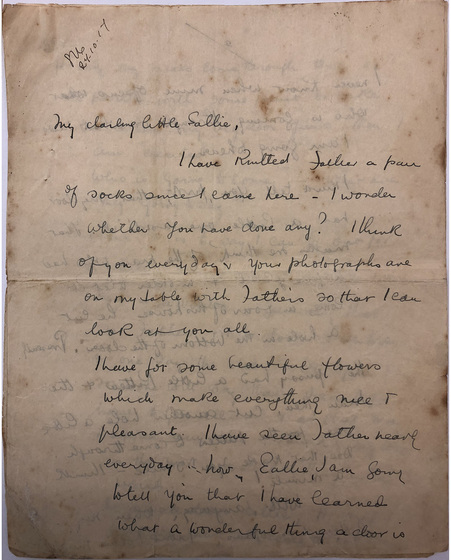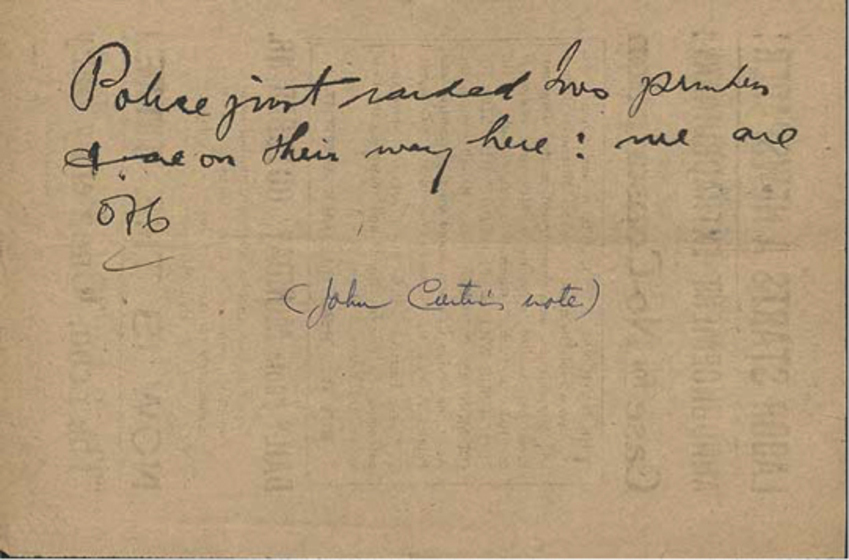Consequences for the Campaigners
The government used its wartime powers to interfere with the anti-conscriptionist campaign, including censoring and confiscating their campaign materials and even jailing some anti-conscriptionists. The government also turned a blind eye to physical intimidation shown to anti-conscriptionists by pro-conscriptionists.
The main law that the government used to harass anti-conscriptionists was the War Precautions Act. This Act, passed in October 1914 gave the government sweeping powers to declare many kinds of behaviour unlawful. The government argued that any damage to morale or the economy would make it harder to ‘defend Australia’. By the end of the war there had been over 3000 prosecutions under the Act.
In particular, the government and the military argued that anti-conscriptionist campaign materials had the effect of discouraging voluntary enlistment, and so should be banned. The military censors conducted several raids on union offices to seize materials, or on the printers’ factories to stop them from being produced.
Several prominent anti-conscriptionists were prosecuted by the government and jailed. John Curtin was imprisoned for three days for failing to register for conscription, while Adela Pankhurst served nearly three months in Pentridge Prison for provoking damage to property.
As well as official persecution, the government and police tolerated harassment of anti-conscriptionists by pro-conscriptionists. Disruption of meetings were common, but there were also incidents of violence. Secretary of the Australian Peace Alliance, Frederick Riley, was thrown into the river on several occasions while speaking at protest meetings at the Yarra Bank. On one occasion, pro-conscriptionists even set fire to the stage that Adela Pankhurst was speaking from.





















